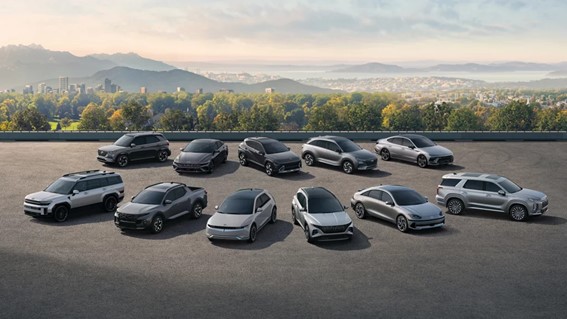Hyundai Motor Company has been the sole owner of its subsidiary, Hyundai Motor India Limited, since the beginning of its operations in 1996. The company plans to publicly sell portions of its existing shares in the Indian subsidiary and will not issue new shares for the IPO.
According to media reports, Hyundai Motor plans to sell 142 million shares out of its 812 million shares in Hyundai Motor India Limited, aiming to raise up to $3 billion. The company hopes to achieve a valuation of around $30 billion for its Indian subsidiary.
The IPO advisors include Citigroup Inc., Kotak Mahindra Bank, JP Morgan Chase & Co, HSBC Holdings Plc, and Morgan Stanley.
If successful, this will be the highest single fundraising issue in India to date. In May 2022, Life Insurance Corporation of India raised $2.7 billion in its initial public offering.
Hyundai Motor's IPO in India is likely to help it raise funds to expand operations in the country. India is the world's third-largest car market. Hyundai Motor Group Chairman Chung Eui-sun has stated that the automaker is focused on growing in the Indian car market. Hyundai is already the second-best-selling automaker in India after Maruti Suzuki.
Hyundai has an annual production capacity in India of 1 million units. It invested $5 billion in two plants in Chennai, which produce 850,000 cars a year. Last year, it acquired a factory in Talegaon from General Motors, capable of producing 130,000 vehicles annually.
Hyundai plans to invest more in India. The company announced plans to invest $4 billion in India over the next 10 years to launch new electric vehicles, charging stations, and battery packs.
In March, India introduced a new electric vehicle incentive policy that reduces import duties on electric vehicles and attracts foreign electric vehicles to invest in manufacturing in India. Following the announcement of the policy, Tesla and Hyundai began exploring entering the Indian car market. Elon Musk had planned to visit India in April to discuss future plans for a factory in India but postponed the trip. At that time, the media predicted that Tesla would discuss establishing a factory in India at a cost of between $2 billion and $3 billion. However, earlier this month, Musk posted on X hinting that Tesla had abandoned plans to set up a factory in India, as the two sides failed to reach an agreement on terms. Tesla hopes to initially test market demand through a series of imports from its factory in Germany. Hyundai Motor Company and Kia Corporation, on the other hand, announced plans in early April to produce electric vehicle batteries in India, and the South Korean automakers signed a memorandum of understanding with Exide Energy Solutions Ltd. in India.






